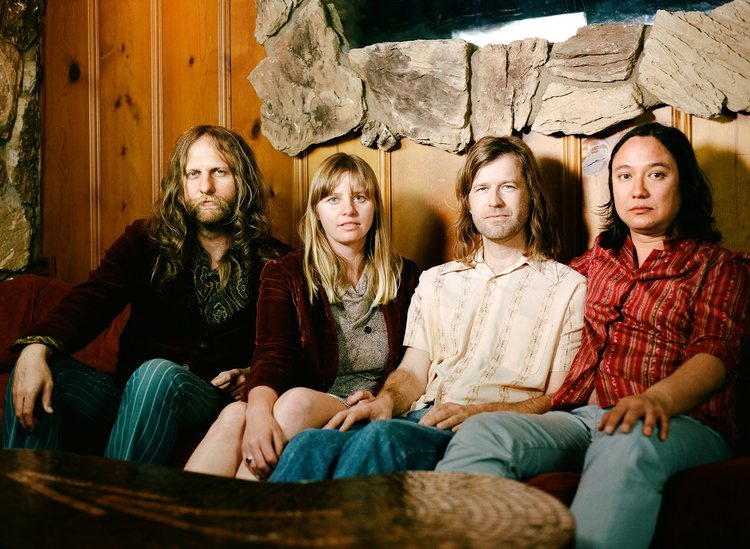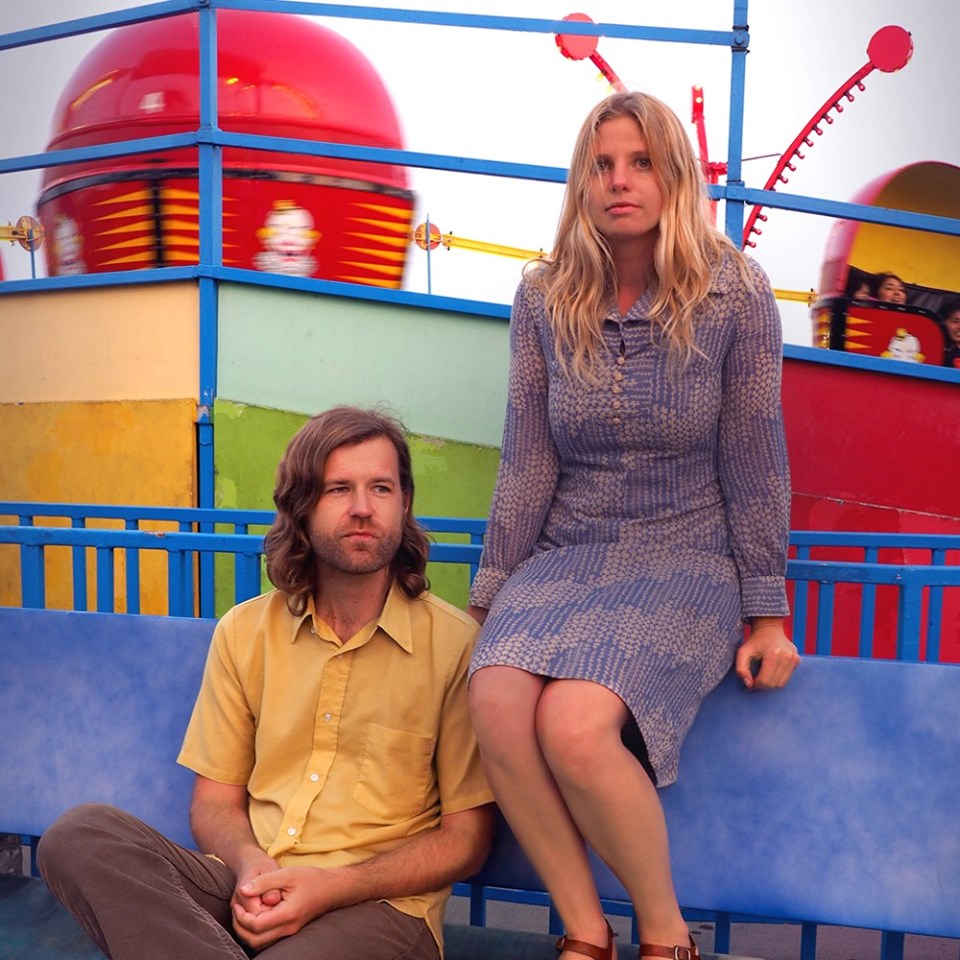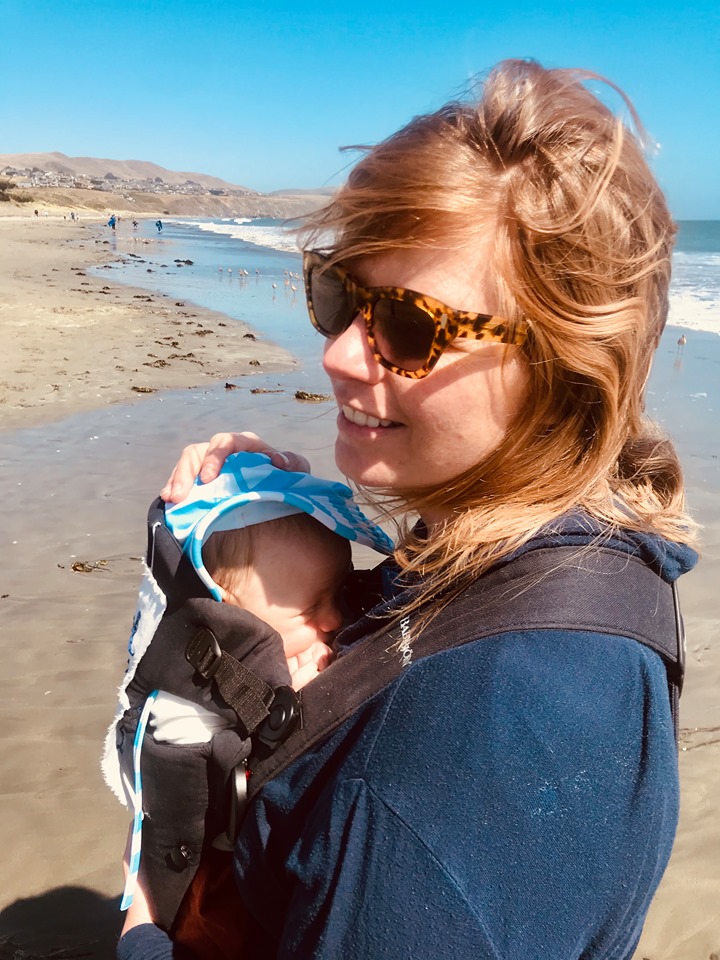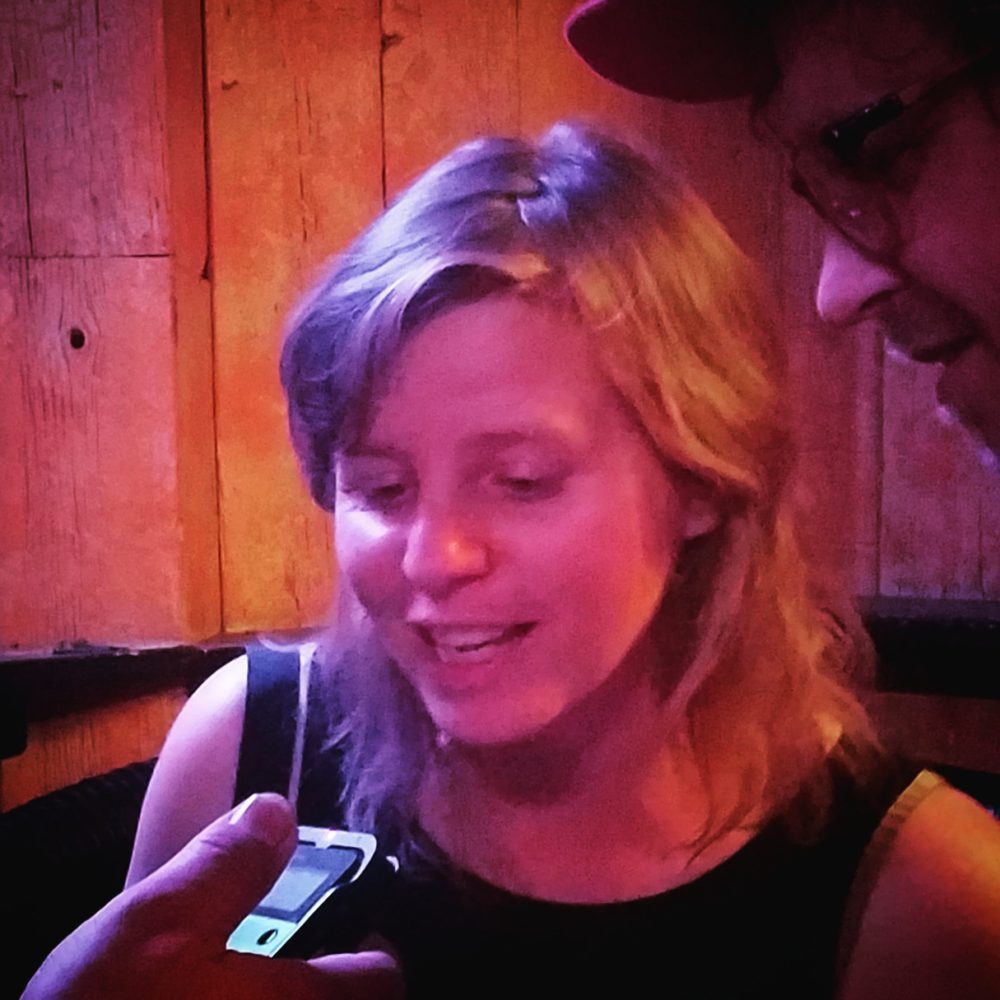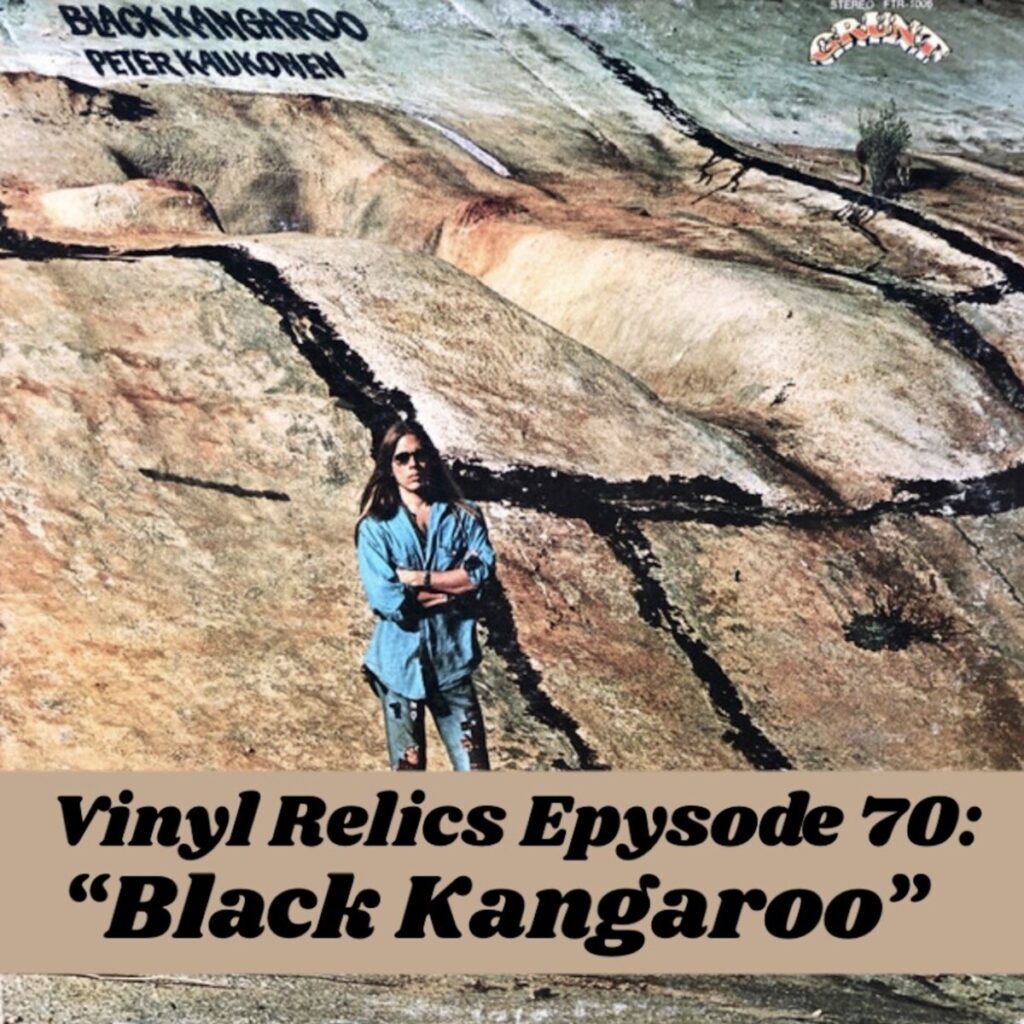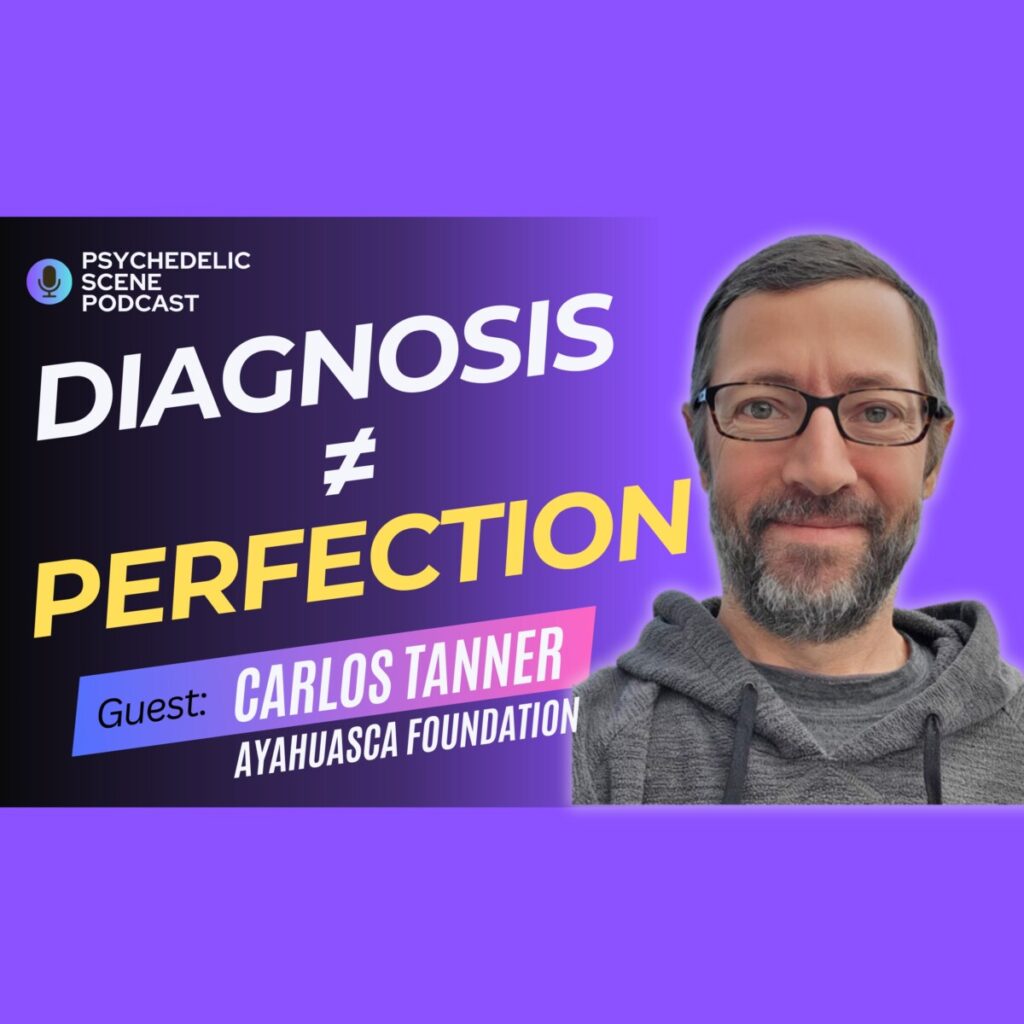Interview: Ash Reiter of Sugar Candy Mountain
Interview: Ash Reiter of Sugar Candy Mountain
on Motherhood, Racial Protests, COVID-19, and New Music from Sugar Candy Mountain
Ash Reiter, guitarist/vocalist/co-producer for the California-based neo-psych outfit Sugar Candy Mountain, probably hadn’t planned to give birth to her first child during a pandemic. However, about three weeks after everything in America got canceled as a result of COVID-19, that’s exactly what happened. Then came the murder hornets, a series of African-Americans killed by cops, the most intense race riots since the late 60s, and wildfires blazing out of control. Add to this the fact that our very own president has been fanning the flames of racial animosity and encouraging citizens to not wear masks that would curb the spread of the coronavirus, and you have, well, the most unnerving half- year of our lifetimes.
Then came the murder hornets, a series of African-Americans killed by cops, the most intense race riots since the late 60s.
For musicians, particularly ones who spend a lot of time on the road, the stakes are even higher than they are for most people because they rely heavily on tour-generated income. On top of that, the independent venues that host indie artists like Sugar Candy Mountain are in danger of going under. Their bills are coming due but, without concert revenue, they may soon run out of money to pay them, which means they may have to close. This potential scenario may have consequences for the world of indie rock for years to come.
Ash Reiter, guitarist/vocalist/co-producer for the California-based neo-psych outfit Sugar Candy Mountain, probably hadn’t planned to give birth to her first child during a pandemic. However, about three weeks after everything in America got canceled as a result of COVID-19, that’s exactly what happened. Then came the murder hornets, a series of African-Americans killed by cops, the most intense race riots since the late 60s, and wildfires blazing out of control. Add to this the fact that our very own president has been fanning the flames of racial animosity and encouraging citizens to not wear masks that would curb the spread of the coronavirus, and you have, well, the most unnerving half- year of our lifetimes.
Then came the murder hornets, a series of African-Americans killed by cops, the most intense race riots since the late 60s.
For musicians, particularly ones who spend a lot of time on the road, the stakes are even higher than they are for most people because they rely heavily on tour-generated income. On top of that, the independent venues that host indie artists like Sugar Candy Mountain are in danger of going under. Their bills are coming due but, without concert revenue, they may soon run out of money to pay them, which means they may have to close. This potential scenario may have consequences for the world of indie rock for years to come.
Space Agency Booking
In spite of all this, Reiter is surprisingly calm and composed. I had the pleasure of Zooming with her recently, as she balanced her newborn son Gus on her knee in her Bay Area home.
JL: So how are you coping with all this craziness that’s going on in the world?
AR: I guess we’re just, I mean, staying at home was kind of what we were going to do during this time anyway. Cause you know, we had Gus right amidst the height of the pandemic.
JL: When was, was he born?
AR: April 6.
JL: Okay. So it didn’t really change your plans much?
AR: Yeah. I mean, except for not allowing many people to see him and putting off, even seeing a lot of our family. I don’t think my dad even got to see him until he was two or three weeks old.
JL: Yeah. I know. It’s weird. You have to take precautions on everything. Have recent events affected your child-rearing philosophy or anything like that?
AR: Well, I’ve definitely been doing a lot of reading up and educating myself on how to be an anti-racist and then I think just being a parent at all in this era, there are just so many things that are frightening like just thinking about climate change and the world that we’re bringing kids into today. So I think it’s just made me a little more committed to action. And like actually instead of just bemoaning the fact that things suck, like doing something about it.
JL: Even before 2020 imploded or exploded or whatever you want to say, people were, I heard people say all the time, “How can you justify bringing a baby into the world?” So now it just seems frightening.
Oftentimes, you’re the only woman there in the room until the audience gets there.
AR: Well, it’s joyful at the same time. I mean, look at this guy. Look at him!
JL: Yeah. He’s cute.
AR: So I don’t know. Part of being human is having kids.
JL: Sure. And it’s not like people can just stop having babies.
AR: We have to heal alongside having children.
JL: Right. Are you hoping at all that Gus will follow in his parents’ footsteps and become a musician?
AR: Well, everybody seems to think he will. He’s got really big hands, so I think he’s going to be a bass player. That’s my thought.
JL: Will you encourage that?
AR: Yeah. It will be available– certainly. I’m not gonna force anything on him, but yeah, sure.
JL: I’m sure you’ve got instruments all over your house.
AR: Yeah. Maybe piano lessons. I might force piano lessons. I think it’s just good.
JL: Yeah. I know. I kind of wish that had been forced on me, even though I know I would have resented it big time when I was growing up.
AR: Yeah. I had always asked for them, but at that point when I was growing up, we couldn’t afford them, but I had always wanted it. Now I can read music very slowly and play the piano by like picking it out but not super competently.
Yasamine June
JL: You guys live in Oakland, right?
AR: We live in a little town outside of Oakland.
JL: Oh, right. I remember you telling me that once.
AR: But we lived in Oakland for a long time.
JL: Were there protests going on in your neighborhood?
AR: You know, it’s a little town of 3000. So I think a lot of people are going outside of our town to protest. There was one little thing that happened in our downtown. I don’t know. I’ve been thinking, cause we haven’t been able to go to the protests with Gus ’cause I’m just afraid of being so close to so many people with COVID out there. And then also just, you know, in Oakland, people are getting tear-gassed and rubber bullets and stuff. So I was thinking about trying to organize some sort of peaceful children’s protest and in our little town.
JL: A children’s protest?
AR: Well, just one that’s safe for kids to come to. Cause I think I’ve heard that from more than one parent where it’s like, “Well, my heart’s there, but I can’t go there with my kids.”
JL: Let’s talk about the new album. I know you guys are getting ready to release a new album. I read that it’s called Hola.
AR: Hola!? No, that’s the old album from when our band was just under my name Ash Reiter. That album already exists.
JL: Well, I’m confused then obviously. What is the new album going to be called?
AR: We haven’t come up with a name for it yet. Right now we’re kind of in a process where we’ve got more songs than we need so we have to figure out how we’re shaping the album–like what makes the cut and what’s the direction of it.
JL: Everything’s recorded?
AR: For the most part. I mean, there’s a couple of songs that we’re finishing up, but we have it all recorded unless we decide to just start on a couple of new ones or something. But I don’t know. With everything going on, we’ve kind of put less pressure on ourselves to get it out there quite as soon. I mean, we’re not going to be touring for the foreseeable future so it’s a little less of a rush to be like, “Oh! We have this tour coming up. We’ve got to have a new album to go along with that.”
JL: Sure. I guess there wouldn’t be much of a rush, although you released an album in 2016 and 2018 so 2020 would be the year.
AR: Yeah, on schedule. I’m sure it will be up within 2020.
JL: So, what can we expect from it? Any changes in direction? Any surprises?
AR: Well, I guess we’ve got a couple new organs and just as you get new toys, that’s kinda what you end up playing with a lot. So it sort of depends on what direction we take. Cause some songs are way more within like the Beatles classic kind of sound and then others are more, I guess like R n’ B influenced almost, in a way, — just more chill. I dunno. More synthesizers and that kind of thing.
Sugar Candy Mountain
JL: Okay. I saw on your website that you guys recorded a song by a fairly obscure 60s band called July. That’s an album I’ve enjoyed for a while now. What motivated you to do that?
AR: I think it was probably around the time of 666. We were just listening to that album a ton. It was on constant rotation with us and it was just like, “Wouldn’t it be fun?” We were also covering that song live so it was kinda like, “Wouldn’t it be fun to try and make a recording of it?”
JL: Well, let’s talk about what’s going on with COVID-19 and what your plan is. Are you thinking you’re just gonna go for it in 2021? What is your likely course of action? I know you guys tour a lot.
AR: Yeah. We realized last year that our drive miles were one and a half times the earth’s circumference.
JL: Wow!
AR: Yeah! For last year (laughs)! But I think because we’ve done that and we’ve toured so heavily—We were looking forward to going to some places we hadn’t been yet in 2020—like we were going to go to Asia this year. I think we’re just going to wait for opportunities to come to see some new things. There’s just no way of knowing what the future holds at this point. I think we’re just not planning ahead at this time.
JL: Right. There’s talk about all these independent venues closing. Does that concern you as an artist that plays in a lot of clubs like that or a lot of venues like that?
AR: Yeah. I know some of them will inevitably close. I mean it’s just the way the economy is right now. There’s no money going into those places. But it’s just, with the virus out there, we just can’t meet those size groups right now. It would be irresponsible for us to be gathering with like 200 people, 300 people. We could get sick. Our son could get sick. Audience members could get sick. We just can’t do it. So, hopefully, they can sustain or there will be grants to keep them open or reopen them or they can be used as a different kind of third space right now and then come back as venues later. It’s one of those things where we’re just going to have to see once it’s safe to actually open them up again.
JL: Well, when you do start touring again, what do you plan to do with Gus? Will you take him with you.
AR: Yeah. That’s the plan. I mean, we had some tour plans coming up and he was going to go with us as a baby, but of course, those have been canceled. But yeah, well we’ll bring a fifth person to help care for him while we’re playing, and then he’ll get to see the world a little bit.
JL: Cool.
AR: Yeah. I mean, it certainly will be tough. Now that we have him, I realize it will be tougher than I even thought it would be, but it’s doable and I think it’s, for me as a woman in a band, it was always, and then, you know, having my partner also in the band, which meant I couldn’t go away and be like, “Okay, well you take care of him for a while.” I think it will be good for other women to see that. I’ve seen a few artists that have done that, but you don’t see that many women with babies that are still keeping an active touring career. La Luz does. Mirah does. But I waited a while to have kids because you’re making this choice between, like, do I want to push this career? And especially when you’re starting, it’s not like you’re doing fabulously well, you know? You’re kind of road-doggin’ it and everything, and can’t really have kids at that point and you don’t have a salary to make that happen when you’re a small, independent artist. So I think it’s important for people to know that they can have both things.
JL: You mentioned you’re a woman in a band. What has that been like for you? I’ve heard other women say that they’re assumed to be just somebody with the band–that kind of thing. Has that been an issue for you or not?
AR: I think that happens. I mean, it inevitably happens. Honestly, I’ve even been guilty of doing that myself before, and that’s when you come across your own bias. You’re like, “Oh! I need to check myself on that.” But oftentimes, you’re the only woman there in the room until the audience gets there. With sound people that can be a whole thing too. Like you’ll be saying something and then they’ll be asking your band-mate about what your setup is like. “Actually, it’s my band. I can speak for myself.” So, I mean, yeah, there’s definitely strides to have our voices heard. But more and more, I’ve been seeing a lot more women sound engineers, which is great. And, I would like to see more women-fronted bands and just women in bands in general. You do see a lot of bands with a bunch of just, you know, four white guys.
JL: That’s been the prototype for a long time.
AR: I mean, the Beatles are great. I’ve got to say it, but we can do different variations on a theme.
JL: Sure. Women have talent too.
AR: Yeah.
Jason LeValley
JL: Well, anything else that you want to say about Sugar Candy Mountain?
AR: Just that we’ve been having a lot of fun recording and we’re excited to see how people react to the new songs. I’m just excited to see how the album shapes up because we’ve been taking our time with it and every time you actually put the product out there, it’s just cool to see where it goes on its own after it’s left your hands.
JL: Right. Well, maybe it will be a blessing that you have this extra time to really get the album the way you want it.
AR: Yeah, definitely.
Related: The Top 100 Neo-Psychedelic Albums
This article originally appeared in It’s Psychedelic Baby Magazine on July 9th, 2020.
Gallery
Recent Articles

Loading...
